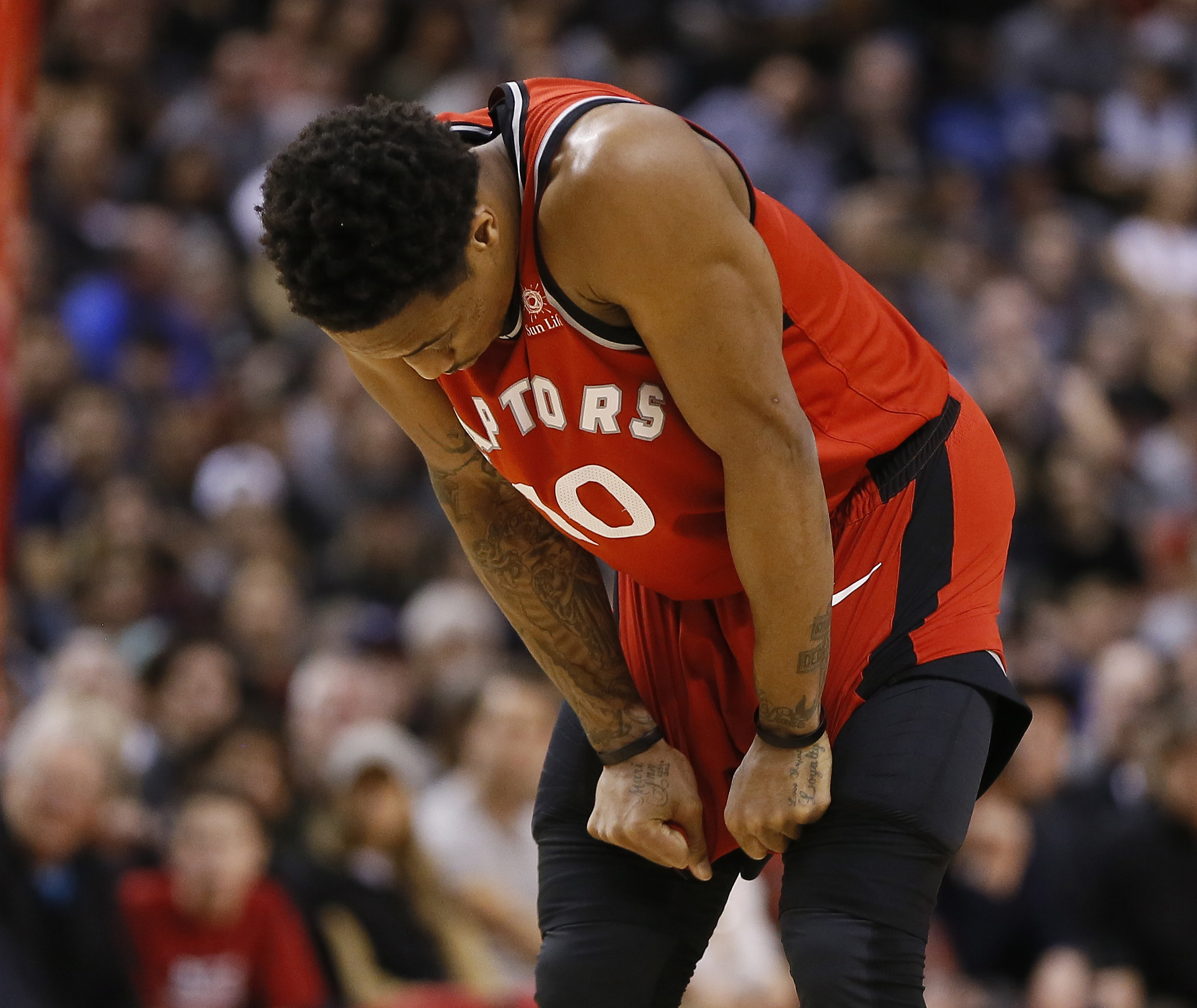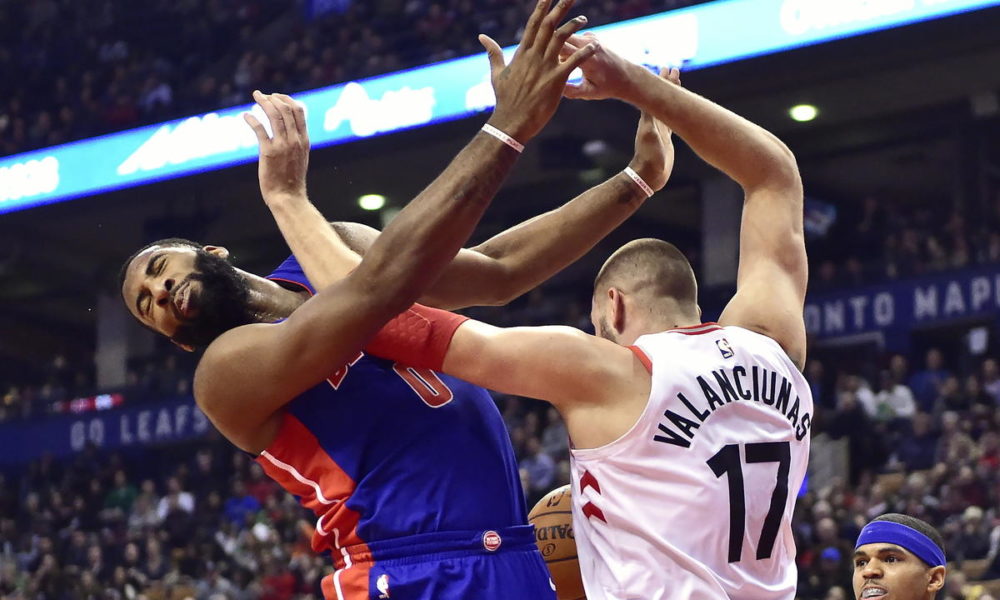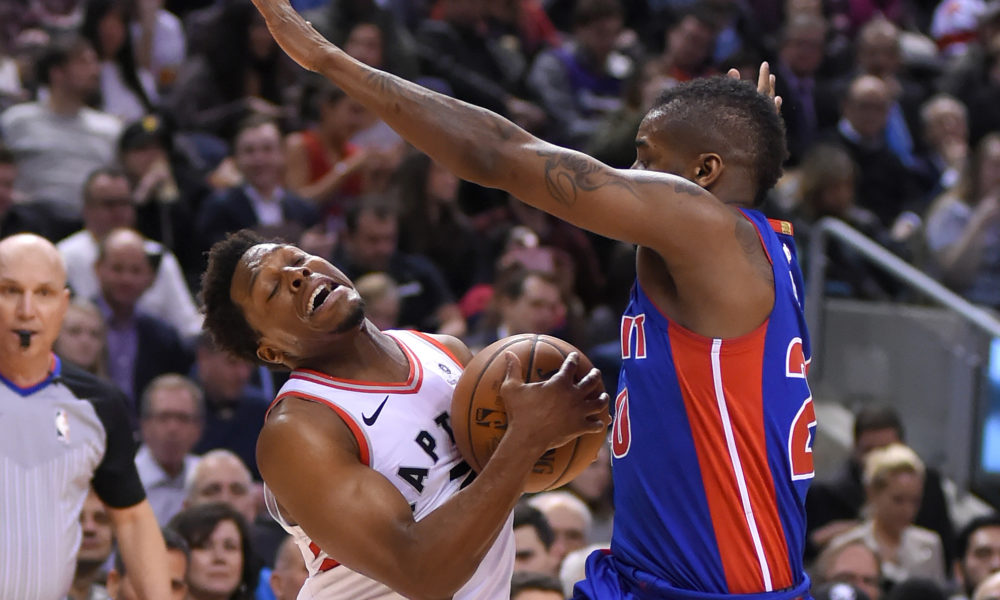What is the regular season?
That’s a sincere questions that I don’t think I’m going to be able to satisfactorily answer for myself. It’s been dancing in my head since Friday night, when the Raptors easily handled the Indiana Pacers on their way to securing their best-ever regular season record and securing the top spot in the Eastern Conference. It’s a question that pits the merits of six months of sustained excellence against the value of a postseason yet to come. On the one hand, the regular season is just an elongated prologue to the real story that is the Playoffs, and so it must always be looked upon as the lesser, as must all the achievements earned during it’s time. On the other hand, it’s the regular season that plays more like the long-form, novel-esque narrative than the far shorter postseason, which allows for more roundness and nuance to define the storylines that emerge than the frenetic ‘in one day, out the next’ nature of the Playoffs. In that structure, the Playoffs become the epilogue, the postscript dictated by a culture that can only accept one singular entity as ‘winner’ by denigrating all fallen opponents as losers, regardless of what they achieved during the far longer regular season.
Of course, without that structure, what’s the point? The NBA season isn’t actually a carefully plotted paperback; it’s a competitive sport where every story evolves in real time and is often given shape and meaning by writers and pundits that have no direct connection to the outcomes their discussing.
So then, what is the regular season to these Toronto Raptors? I’ve said it myself, both this season and in seasons’ past, that the regular season for a team as good as the Raptors is really just an elongated training camp for the Playoffs. When I said it I meant it as a compliment. The Raptors had graduated, in a sense, from a team attempting to master the length and breadth of the regular season into a team that must now master the far more complicated — and unforgiving — postseason rush. Looking at what they’ve achieved this season, though, that now feels disingenuous. I have never missed watching a single Raptors game (well, except for the infamous Game 7 against Philadelphia, where me and three friends huddled around a radio like a family from the thirties listening to Chuck Swirsky describe Vince Carter’s last-second shot rimming out). I am intimately aware of how singular this regular season has been for the Raptors. To merely nod at this achievement as though it were simply exam prep for the Playoffs is to cynically ignore all context in the name of observing the agreed-upon framework that only the Playoffs truly matter.
For the bulk of their history, all the Raptors had was the regular season. To follow the Raptors was to obsess over the micro details, the game-to-game trends (since the macro view was a pretty depressing perspective to take). Watching the regular season was like treasure hunting, looking for clues that would someday lead to gold. It was about scrutinizing the littlest things and finding joy in them, like how Chris Bosh going down for ten games in 2006 led to T.J. Ford finding his groove as a leader. Or how Jose Calderon and Amir Johnson had the weirdest/loveliest on-court chemistry. Or how Kevin Willis and Charles Oakley brought a realness to a team that almost seemed to be playacting as an NBA franchise. For a team that has had so few Playoff appearances, let alone Playoff victories, the regular season basically was the NBA for Raptors fans.
Being a Raptors observer was never about whether the Raptors could win — or even compete for — an NBA title. That was an absurd ambition. It perfectly mirrored the underlying insecurity of a city like Toronto, a city that always pleads for respect and attention while simultaneously insisting that it doesn’t deserve it and will never get it. People convinced themselves that Toronto could never attract (or retain) the kind of star talent necessary to compete for a title, and even if they could the league would conspire to prevent it from happening, so better to obsess over the regular season and not bother treating a title like a realistic goal. It was with that frame of mind that the regular season took on such monumental importance. It’s how message boards could light up over a swap of Charlie Villanueva for T.J. Ford, or whether or not Terrence Ross was maybe better than DeMar DeRozan, or if the Raptors would be better off if they traded Vince Carter. These were the kinds of debates that enlivened the Raptors base, not whether or not the club was building a true title contender. Making the Playoffs at all was as big a goal as most could contemplate. Making the Playoffs was the victory, the gold star that resulted from a successful regular season. Historically, the whole of the team construction and team performance narrative was all about whether or not the regular season would be successful enough to make it to the postseason. That was it. That was as big an achievement as most could imagine.
Of course, over the last few years that has begun to change. The Playoffs are now an expectation and some are even willing to imagine a world where the Raptors make the NBA Finals (of course, no one is yet willing to imagine them ever winning one, but we allow for baby steps here). That’s why, at the start of this season, it was so easy to immediately write off the next six months. The Raptors were ‘past that’. Worrying about the regular season wasn’t how things worked in Toronto anymore. The Raptors had graduated out of that. No matter what happened, it was all about the Playoffs, and there remains a cold, analytical truth to that. The Raptors have had varying levels of success in the regular season of late and then failed to execute at a high level in the postseason, so much so that it has become a defining characteristic of the club. So, that being the case, who wanted to be the dope that put any stock into what they did between October and April?
Well, that was before they did what they did. That was before they won 58 games (and counting). That was before they spent most of the season as the east’s number one seed, and well before they secured it. That was before they posted the league’s second-best point differential by having their most consistent season in their history. That was before they spent basically the entire season ranked in the top-five in both offense and defense, a mark only achieved by the truly elite.
Elite.
That’s what the Raptors were this regular season. They indisputably joined the ranks of the very best that the league has to offer. That means something. For a team that used to only ever be able to measure success by their proximity to making the Playoffs, for a team that has spent decades vying for respectability, for a team that felt like they were playing in a different league than clubs like San Antonio, being elite means something. This regular season means something.
So, what is the regular season then? I’m still not sure that I know. If the Raptors lose in the second round, will any of this matter? Will people look at the the totality of the season and see success or failure? Is it possible to separate what has happened before today with what will happen in the days and weeks to come? Is putting this kind of stock in the successes of this regular season outdated thinking? A vestige from a time when all the Raptors had to measure themselves by was the regular season? I don’t know the answer to any of that.
I think, ultimately, this is one of those times when Raptors fans, be they recent or longstanding, have to break from the herd and decide what this regular season means to them. There is no right answer here. If you want to say that the regular season is irrelevant when compared to the Playoffs, then you are no more or less right than the person sees this kind of regular season achievement as an end unto itself. This regular season needs to be reckoned with, though, by anyone even tangentially connected to this club. It can’t mean nothing. It didn’t not happen. This regular season is something, and I guess ultimately we all have to decide for ourselves what that is.



